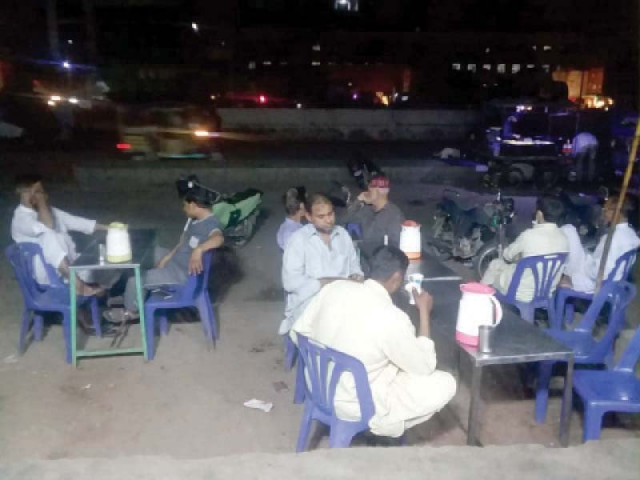Dengue haunts Karachi’s nightlife
City can be looking at a dengue epidemic if precautionary measures are not taken, say experts

A variety of reasons, including poor sanitation and lack of routine fumigation sprays have led to a surge in dengue cases across the city of Karachi. The virus, that is carried by mosquitoes in the Aedes genus, can be transmitted through night as well as daytime bites, which is why experts have been advising citizens to remain fully covered indoors and outdoors and to use nettings and pesticides to keep the vector at bay.
However, after almost two years under Covid-19, it has been hard to keep citizens indoors following the lifting of restrictions; especially after nightfall when the metropolis is historically known to come alive. As soon as the sun begins to set, people of all ages are drawn to open-air restaurants and roadside chai-dhaabas that are scattered throughout the city, where loud colloquies and clouds of cigarette smoke fill the air till wee hours of the night.
However, as vibrant as Karachi’s nightlife culture appears, lack of anti-dengue preparations at much of these dhabas and food streets have allowed a buzzing predator to haunt the very street corners where the city communes. Experts believe that if situations like such continue to persist and caution is thrown to the wind, the city could be looking at a dengue epidemic, after barely surviving the chaos that ensued during the four pandemic waves.
Read More: Dengue cases drop in twin cities
“If you look at the food streets of Karachi, including Burnes Road, Kharadar, Hussainabad, Gulshan-e-Iqbal, Super Highway, Liaquatabad and others, you will see that they are filled with open-air restaurants, hotels and barbecue joints, none of which have bothered taking any precautionary steps against dengue,” claimed Imranul Haq, who is a volunteer at a charity working to prevent epidemic breakouts in the city. “At night when people eat with their family or friends at these hotels or restaurants, there’s always a cloud of mosquitoes buzzing over their heads, while no coils or sprays are used to protect the customers. Whereas, at many of these places, especially road-side tea houses, the dishes are also washed in open water tubs, which can quickly turn into breeding grounds for the dengue-causing mosquitoes,” he added.
Speaking in the regard, Haji Jamal Khan who owns a teahouse in the Nishtar Road area, confirmed that most dhabaas do not fumigate their premises or burn repellant coils, owing to the expenses involved with the practice. “How many mosquito repellent coils will we use every day?” He asked. “This is an additional expense. The only thing we can afford is to not store water in open pots and tubs,” he added.
According to Muhammad Asif, who is the secretary of a local mosque, the sewerage system in Karachi is in dire straits. In different areas close to mosques and madrassas, the alleys collect gutter water, which is a breeding ground for mosquitoes. “We routinely fumigate our premises, but unless the sanitation and sewerage system is improved, dengue will be difficult to control. Which is why we request the worshipers to use less water during ablutions so that water does not accumulate in the ablution rooms and at least our mosques don’t turn into dengue hotbeds,” he said.
In this regard Pakistan Medical Association General Secretary Prof Dr Qaiser Sajjad said that the dengue mosquito is known to breed in clean water, which is why homes and hotels should not store water in open tubs and routinely drain their tanks or keep them covered at all times. “The public is advised to remain fully clothed, especially during the hours of sunrise and sunset and use repellent creams on exposed skin. While the government should run a spray campaign to stop the spread of mosquitoes in Karachi and provide awareness to the people so that they can stay safe from dengue,” he told The Express Tribune.
Published in The Express Tribune, November 6th, 2021.



















COMMENTS
Comments are moderated and generally will be posted if they are on-topic and not abusive.
For more information, please see our Comments FAQ